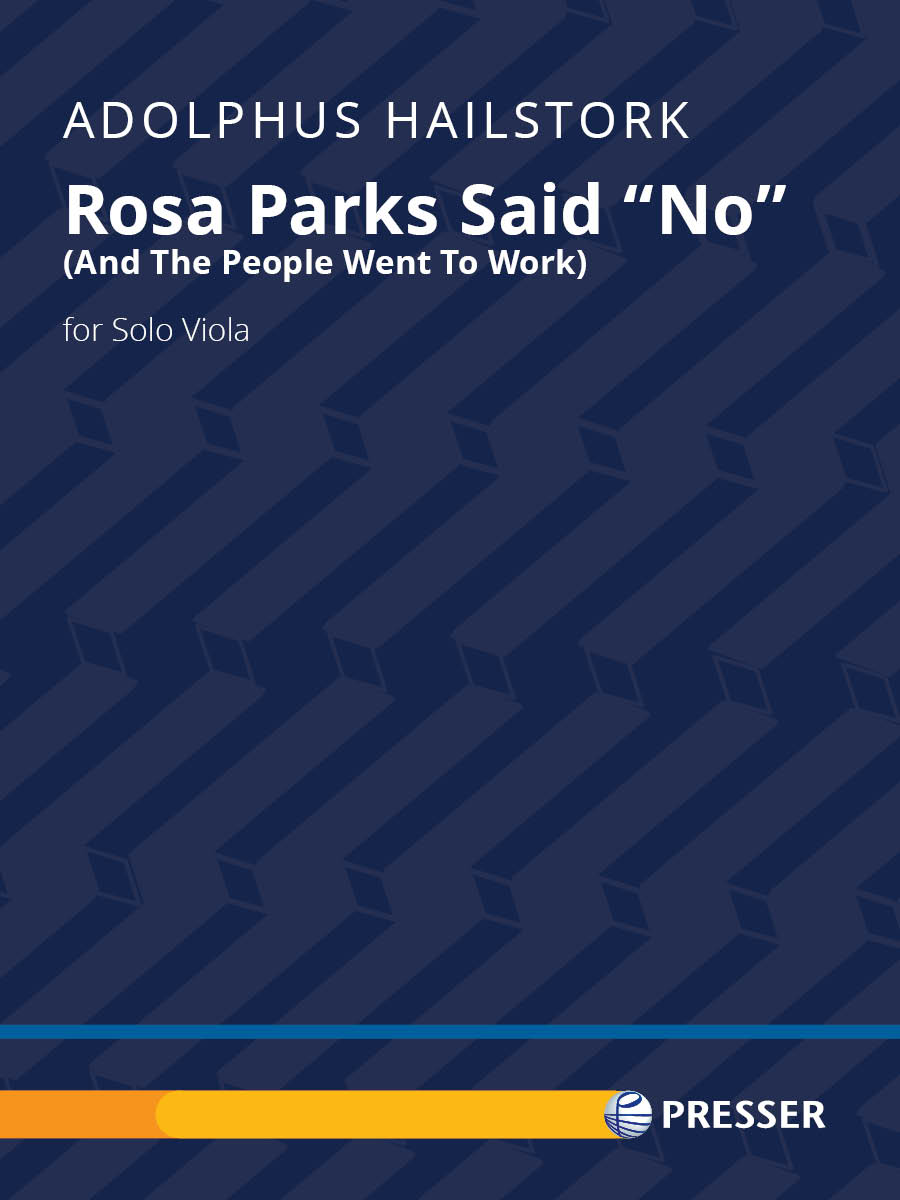Theodore Presser Company / cf / 114-42357
Rosa Parks Said "No"
(And The People Went To Work)
$14.99
Adolphus Hailstork
Scroll down for Related Items listings.
Strings.
One of the bravest and most potent calls to social action by one individual was the famous 1955 refusal by Rosa Parks to give up her bus seat, laying the groundwork for the ensuing civil rights movement. Hailstork’s title says it all, and his dramatically expressive work for solo viola declaims it all. Using a musical language that evokes action, blues, and power, along with a considerable infusion of contemplation and determination, ROSA PARKS SAID “NO” is a 9-minute instrumental monodrama perfect for any concert recital as well as special programming needs.
One of the bravest and most potent calls to social action by one individual was the famous 1955 refusal by Rosa Parks to give up her bus seat, laying the groundwork for the ensuing civil rights movement. Hailstork’s title says it all, and his dramatically expressive work for solo viola declaims it all. Using a musical language that evokes action, blues, and power, along with a considerable infusion of contemplation and determination, ROSA PARKS SAID “NO” is a 9-minute instrumental monodrama perfect for any concert recital as well as special programming needs. The work's premiere by violist Philippe Chao may be heard at https://youtu.be/xHFJ-L-Bcxc
The Montgomery bus boycott was a political and social protest campaign against the policy of racial segregation on the public transit system of Montgomery, Alabama. It was a foundational event in the civil rights movement in the United States. The campaign lasted from December 5, 1955 — the Monday after Rosa Parks, an African American woman, was arrested for her refusal to surrender her seat to a white person — to December 20, 1956, when the federal ruling Browder v. Gayle took effect, leading to a U.S. Supreme Court decision that declared the Alabama and Montgomery laws that segregated buses were unconstitutional.THE FIGHTIn addition to using private motor vehicles, some people used non-motorized means to get around, such as cycling, walking, or even riding mules or driving horse-drawn buggies. Some people also hitchhiked. During rush hours, sidewalks were often crowded. As the buses received few, if any, passengers, their officials asked the City Commission to allow stopping the service to black communities. Across the nation, black churches raised money to support the boycott and collected new and slightly used shoes to replace the tattered footwear of Montgomery’s black citizens, many of whom walked everywhere rather than ride the buses and submit to Jim Crow laws.THE TRIUMPHThe Montgomery bus boycott resounded far beyond the desegregation of public buses. It stimulated activism and participation from the South in the national Civil Rights Movement.
Voicing/Instrument: Viola



